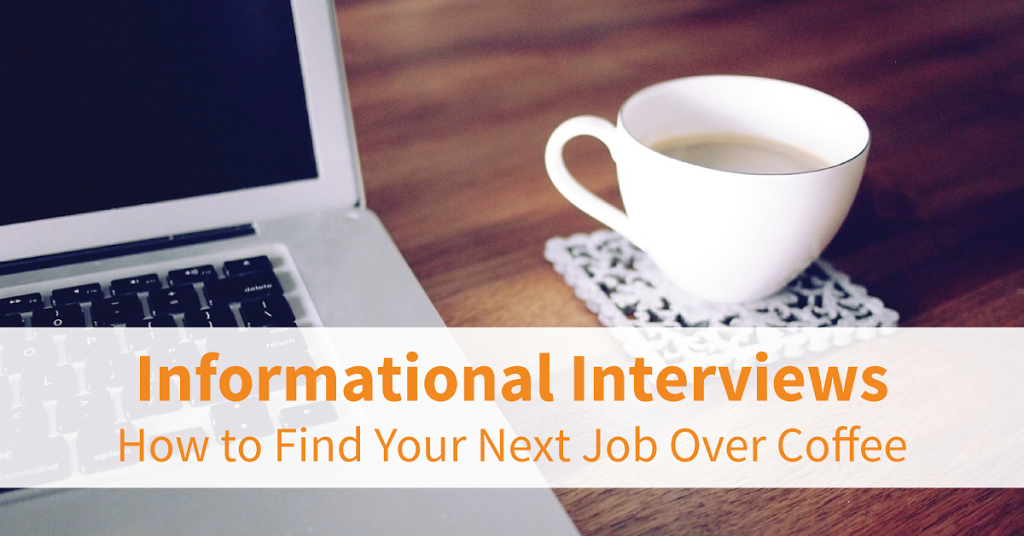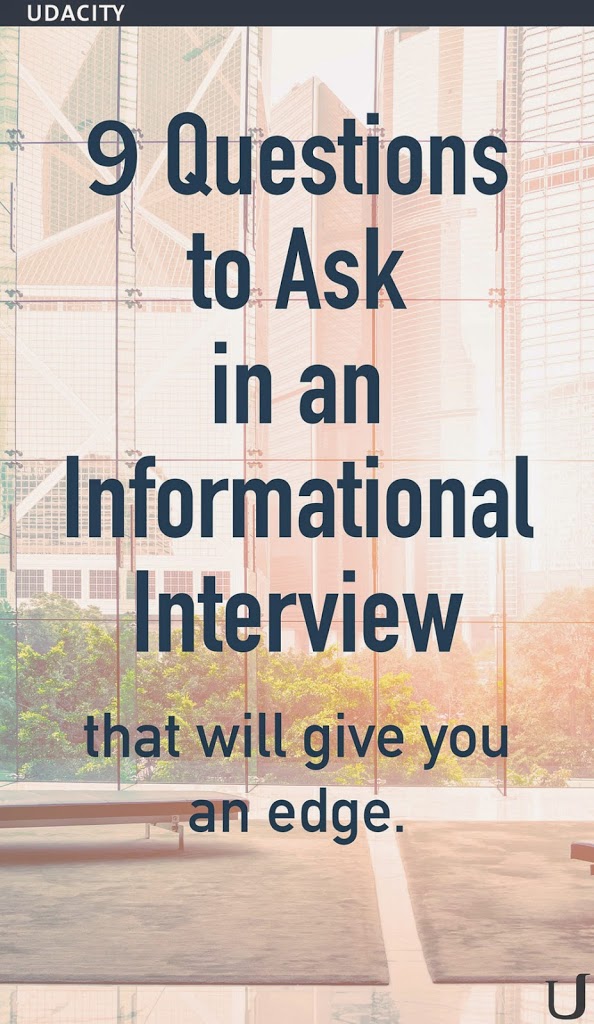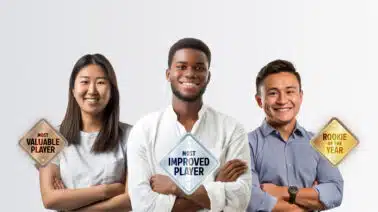What’s an informational interview? It’s a conversation you have with someone in a career you’re curious about. You ask them about their path, resources they find helpful in their work, and advice for people like yourself looking to break into that field.
Informational interviews are fantastic ways to learn more about what a particular career looks like, and to discover new opportunities. They’re also a great way to build your network as you prepare to venture into a new field. That being said, it does take some research, preparation, and gumption to reach out to people you admire for their time and advice. Here are a few tips to help you get started.
Step 1. Clarify What You Need
Maybe you want to learn about a career path or what it’s like to work for a certain organization. Or, perhaps you want to know whether the skills you’re learning are worth investing in. Ask yourself: What am I struggling with? What do I need guidance on?
Step 2. Research
Once you have sense of what you need, you can start doing some research. Great places to start are (in order of most impact):
Current colleagues, alumni, and friends: Always start with who you know. Do your friends know that you’re interested in a new career? Tell them! And let them know you’re looking for people to talk to. Try this simple email (great for people you know, but aren’t especially close with):
Hi Jane,
I hope you’re well! It was great running into you at the storytelling conference last month. Did you ever catch up with Meredith? [Remind her of how you know each other and establish a warm contact]
I’m trying to learn more about what it takes to be a front-end web developer and am looking for people to chat with who have experience working in this field. I remembered that you worked at a web company and am wondering if you could recommend someone for me to reach out to. [Specific ask]
If not, no worries! I appreciate your time.
Sam
Also, a mutual connection makes it more likely you’ll get to meet someone, especially if you went to the same college.
Informational interviews can give you an edge over the competition.
Events: Did you recently hear someone speak? Make a note of it and follow up with them.
LinkedIn: There are two helpful searches you can do to find people. First, you can search by company. Pull up a company page and on the right-hand side you’ll see a list of people you might be connected to who work there.
You can also search by job title. Search for “People with title front-end developer.” You’ll see filters that allow you to identify whether someone is a first, second, or third connection; whether someone is a group member; whether they have the job currently or held it in the past; and where the person is located.
Companies you admire: On the About Us page of most company websites you’ll see who works there, bios, and occasionally contact information. No info? Google “email [person’s name] [company name].” A little sleuthing can usually get you their email addresses.
Jonathan Worbel, for example, was working for the City of San Francisco as a program analyst when he realized that it was time for something new. To jumpstart his career, he began taking intensive classes in coding. But he also realized he needed to learn more about the careers that might be available to him. “I went on LinkedIn and did some research and saw that I had a second degree connection from a past job. I asked her if she could connect me with someone [where she works] and she put me in touch with the data architect.” Worbel then had someone to reach out to, and an introduction through which to do it.
Step 3. Reach Out
Once you have some contacts, you can get in touch. Your email (and it should be email) should be short, specific, and warm. Here is a template:
Hi Mike —
My name is Sam and I heard you speak at the Meetup for Android Developers last week. It was great hearing about the cool things your company is doing, especially the volunteer program you’re launching! [Establish a warm, mutual connection]
For the past two years, I’ve been building my skills in data analysis by working on side projects. I am excited about this work and would love to learn more about what it takes to build a career in this space. [Mention where you are in your career]
I’m sure you’re busy, but do you have time for a quick cup of coffee or perhaps a short meeting at your office? I was really inspired by your talk and I’d be thrilled to learn more about your work. I’m happy to meet at a time and place most convenient for you. [Make a small, polite ask that emphasizes your flexibility]
Let me know if it’s possible for us to meet!
Sam
Keep in mind that the higher up the person is, the tighter their schedule is likely to be. Aim for people who are one to two levels above you. This way, they’ll have experience in the field, but will also be relatively approachable, with more flexibility in their schedule than someone higher up the ladder.
When Worbel reached out to the architect his LinkedIn connection had pointed him to, the architect agreed to meet him outside the office. Over coffee, Worbel learned more about the organization, the industry, and even received a list of interview questions his interviewee often asked potential hires. Talk about a power meeting.
Step 4. Prepare
To make the most of your meeting, prepare well for it. There are many questions to ask, but DON’T ASK FOR A JOB. It puts the person on the spot and is pushy.
If you’re not sure what to ask, consider this short list of questions:
- How did you get started in this career?
- What do you love most about this job? What do you find challenging?
- What do you do on typical day?
- What skills are needed for this job?
- What other options are open to someone with those skills?
- What do you wish you had known before you started this career?
- How do you recommend I start my search?
- Is there anyone else you recommend I talk to?
- Is there anything I can help you with?
Be prepared also simply to talk, as Worbel did. It doesn’t all have to be about work.
Step 5. Follow Up
Follow up with a thank-you email that mentions what you learned or found most helpful, that says something about how you’ll use the info, and that shares a link or resource related to something the interviewee mentioned. That last one is a “gift” of sorts to demonstrate that you were listening, that you’re appreciative, and that you want to give as much as you get.
The Bottom Line
Informational interviews elevate you to the status of acquaintance, to being someone known at the company, possibly even to the reviewer him- or herself. You’ll be more than just a face to match to the resume.
For Worbel, the informal, conversational nature of the informational interview helped him to stand out. “You can be a person instead of just an applicant. There’s no nervousness and pressure and inherent power dynamic. I was able to ask about life, and connect.”
A month and a half after this exchange over coffee, Worbel was approached to do a real interview. He got the job.





